Scott: Okay. All right, here we go. Francesco, I really appreciate you taking the time to do this, brother.
Francesco: Thank you for having me!
Scott: It's funny to talk to you in a formal way when you and I go so far back, and it's like, we just talked for half an hour as friends.
Francesco: Right, right, right.
Scott: I’ll just switch over now to interview mode. But yeah, I think the first thing I wanted to start with—and thank you also for being the first person that I'm having on this way. I'd love to do a few of these chats over the course of the year for the newsletter—but I think it was exciting because we're finishing up Night of the Ghoul right now, which we'll talk about a little bit more in the paid newsletter…
So, the way this will work is I'm going to ask you a few questions, and Francesco and I will go back and forth. And some of it will be for the free newsletter and then some of it will be just for paid subscribers, so we’ll do both. But Batman’s all over the place these days, and I am seeing the movie tonight, I'm really excited and I'm taking my 15 year-old if he doesn't get in any kind of trouble between now and then to be able to go see it after hours. But everywhere we look there's, like, lists about Batman—best Batman stories and who's your favorite Batman and all that kind of stuff. And I think you and I were lucky enough to do a story that we really loved with Jock called The Black Mirror, which was also my first Batman gig.
And we're also lucky that it's been winding up on a bunch of these best-of lists. So, very grateful to everybody thinking of us for that. But I wanted to talk about that for a second and just ask you, because I approached you when I was nobody. I mean I was just coming out of the woodwork. I was only on a few comics and I was just coming out of having had maybe one or two issues of American Vampire out when I approached you about being one of two artists on the series and a commitment that would take, like, a whole year to do so. I was just wondering, do you remember what your reaction was when I first reached out to you and was like “hey, what do you think?”
Francesco: Oh yeah, I do. I do remember very well because that happened at the same time when Marvel approached me to do Black Panther.
And that happened at a convention, HeroesCon, where the editor found me on the floor, specifically the Black Beetle ashcan that I had on the table was what grabbed his attention.
So, I got the gig at the same time you were emailing me, like, that same week after the convention, but introducing yourself and saying, “hey, I'm doing these run on Batman for Detective Comics. I’d like to do this backup story that has to do with Gordon Jr.” and I was like, what's happening? Because all of a sudden I'm working with both Marvel and DC at the same time. And I knew that that was probably saying too many yeses, but those are opportunities that only come once in a while, so I said yes to both. And specifically when you told me the detailed story of James Jr., I was really impressed with the horror/thriller nature of the story, which plays to my heart.
Scott: And I remember, I have our first email, actually, from mid-2010 where we're getting in touch and I wrote to you and I'm like, “I'm so excited about you doing the backup! I really want to talk to you about the run, the whole thing is one big story, so it's not just the backup. I want it to be yours and etc etc.” I mean, it's so funny because we sound just like we do now, but when I look back, I'm like, we also sound like kids. You know what I mean? Like, the enthusiasm for the first chance at Batman is so palpable there.
And yeah, man, you were perfect for it. I mean, I think with me, like, I was so attracted to the way that your art has this pulp quality and yet has a gritty darkness that grounds it, I think, in the emotional anxiety and fear and horror and makes it feel, more than anything, just sort of pulpy in that way. It has a real gravitas that you bring along with an emotionality, and just the framing and the the design work, the way that you are so good with graphic design and with angles that really dramatize things panel to panel. I felt like you'd be perfect for the James Jr. stuff. And it was interesting, because I feel like we had Grant Morrison on Batman, so they gave us a little more leeway. But do you remember this one moment when we were doing it? Because, for me, I really just thought I was gonna get fired. I was like, “well, this will be my one chance to write a Batman story, and I'm going to give it everything I got with these guys that are just going to elevate everything I do, and then after that they'll kick me off.” But there was a point at which I felt like we had something really special, and I remember just where it was. And I'm kind of curious about if you had a moment when you thought this might actually be a book that that has a bigger impact or sits on the shelf for a while.
Francesco: Yeah, I mean, I kinda got the idea that this was a really, really good story from the very beginning. The first backup I did with Gordon visit to the…
Scott: The aviary?
Francesco: The aviary, yeah, yeah. And then the big hawk or eagle breaking through the window, and then all that plays into the flashbacks with James Jr.
So, yeah, I think I got it there. Because I'm a longtime fan of Batman, I’ve read many stories either in the regular storylines and Elseworlds or whatnot. So, I thought that was the first time that I was reading that kind of story in Batman and said, “oh, we're bringing something new, something fresh.” So, I did feel like that was gonna make it special on its own.
Scott: Yeah, I mean, honestly for me it was one of two moments when I realized that this was everything I had been thinking about, because the story for me was largely about Gotham changing itself and adapting into the worst villain that it could be for Dick Grayson in the cowl and approaching all his fears differently than Bruce's, because James Jr. wouldn't be the same kind of threat to Bruce as he is to Dick because he's an inversion of all Dick’s values. He has a lack of empathy where Dick’s strength is empathy and compassion. And so, for me, the moment I remember—when we finished the Dealer arc, and I was like, wow, that that turned out better than I expected thematically. All of it, like when I was writing it, it really hit deeper nerves for me and it was a better expression of what I had hoped it would be than it was. And the thing I'd say to readers and listeners here is that when you get back art that speaks to what you're going for, but in a better way than you could, you elevate your game when you start doing lettering over it. So it was a constant back and forth between you and me and Jock about just pushing each other to make something better and better. But it was the end of that arc where Dick is staring into the mirror and not answering Alfred.
And then the next issue, which you did, was the James Jr. issue from #874 into 875.
Scott: That point where we really dig into his past and his relationship with Jim and the mystery of the skeleton keys and whether or not he's a killer and a psychopath who's playing Jim, or he's a sociopath who's never hurt anybody and who's genuinely trying to become better.
That was the moment I was like, this is all coming together. And I remember seeing your art and how beautiful it was. And I had already started feeling it when we did that diner scene where James Jr. makes the joke about the head being stuffed in the bathroom.
And the way that you drummed up the tension there with those Hitchcockian angles, but it was with that issue that was so dark and so evocative in the way that you framed everything. So, it had this almost creeping dread throughout the whole thing, panel to panel, and the way the panels bled into each other, and you do the spreads where it was Jim Gordon's face and everything in his mind and all of it. And it was that halfway point of the arc of #874 and 875 where I was like, “if we play our cards right, with this one, this could be something really, really meaningful.” I already wanted it to be, but sometimes you really try and things go one click or two clicks away from where you want, and then other times when it really hits,like it's hitting a nerve even deeper than you'd expect it to.
Francesco: Yes, the diner scene is one of my favorites from from the run, because there's so much tension and there's really nothing happening on the paper. So, to have that kind of tension and drama coming out of just two people talking at a table. I mean, yeah, that was quite the feat. And then we followed that up with #875, which has some of my favorite imagery I ever created for a comic book.
Scott: Me too.
Francesco: All of the flashbacks and the past that keep intertwining with the present, the keyring… I mean, it's good stuff.
Scott: Yeah, I love it.
Francesco: I'm still very proud of it. I mean, now that it’s like 10 to 12 years ago, I’m still very proud of it.
Scott: Me too, man. And I reread it the other day, and sometimes you go back to things and you don't feel a connection with them as much as you used to, but you still like them. This one, I feel a direct line to where I read it and I was still hit by it in a way that makes me want to return to it in different ways, which is why I think it still resonates. There's a real energy to it that feels like it's about something for us at that time, and it was. And I think some of the messages in it still really apply both to Batman and to the world at large. Let me ask you this—after doing so much superhero stuff, I mean, you've done so many things between licensed work, between all the amazing stuff that you created on Archie, all the stuff that you've done over the years with DC and Marvel… do you have a superhero gig you're still dying to do?
Francesco: Well, yeah. I’d like to bring my 1970s Batman story to life, because I think it's really cool.
Scott: It is! I love those images, you’ve gotta send all those to me so I'll put them in here.
Francesco: Yeah, it'd be very different from anything that’s been done before with Bruce Wayne. So, I think I can still do an original take with it. That’d be a dream for sure.
Another one will be a noir re-imagining of established superheroes, like you were mentioning. I have an idea for a noir Ben Grimm detective story where he’s this private investigator investigating the murder of our Mr. Fantastic.
Scott: Oh, my god, dude, I love that! That sounds amazing! I can see you just knocking that out of the park. I’d do that with you!
Francesco: Absolutely! Yeah, I mean, my love is for horror, but as you mentioned earlier, it's also for pulp noir, that kind of stuff. So, if I can apply that to the superhero genre, because usually, those stories are always more colorful. I mean, it’s superhero stuff. So, I’d like to do more grim noir takes on it if they gave me the chance to do so.
Scott: A Ben Grimm detective story investigating the death of Mr. Fantastic sounds incredible. I think you and I'd have a lot of fun. Alright, last thing super quick and then I'll switch over to sort of paid questions. It'll be a little bit more about craft, about how you broke in, about that stuff. But do you have a favorite iteration of Batman and why do you think Batman has lasted so long?
Francesco: Alright, favorite iteration… Talking about comics, I gotta go with Batman: Year One. I mean, that's a graphic novel that I’ve always loved, which mostly has to do with Mazzucchelli’s art, which I feel very, very close to.
In movies, I guess that would be Tim Burton’s? Those two movies are still my favorites, but just because I'm a huge fan of Tim Burton. I think the way he does the crazy, it's very unique. And I really, really liked it.
I still haven't seen the new Matt Reeves movie, so that may change. We'll see. Yeah, and why he’s lasted so long… I mean, he’s my favorite superhero. And the thing has to do with the fact that he's just a guy. I mean, he’s filthy rich, so he can afford to have all kinds of gadgets that help him fight crime and doing his job, but in the end, he can be any one of us in a way (if we had more money and if we worked out really hard).
Scott: Yeah, I always felt the money is vestigial, like it's a leftover from the 1930s. I always wanted to take it away from him, not as a story point or a story about him losing it and getting it back, but I think there's a version of Batman, like an Elseworlds version, that if I did now, I would do with him growing up without wealth in that way and show that he's just as Batman as he is with it, as much as I understand it's a part of some people's version of him in many different ways that are important. For me, it's not. It's kind of a fun thing that he has all these gadgets and all this stuff, but it's the cool factor. Outside of that, the core thing that I think makes him enduring is much deeper. But alright, well, Francesco, I really thank you so much for doing this!!











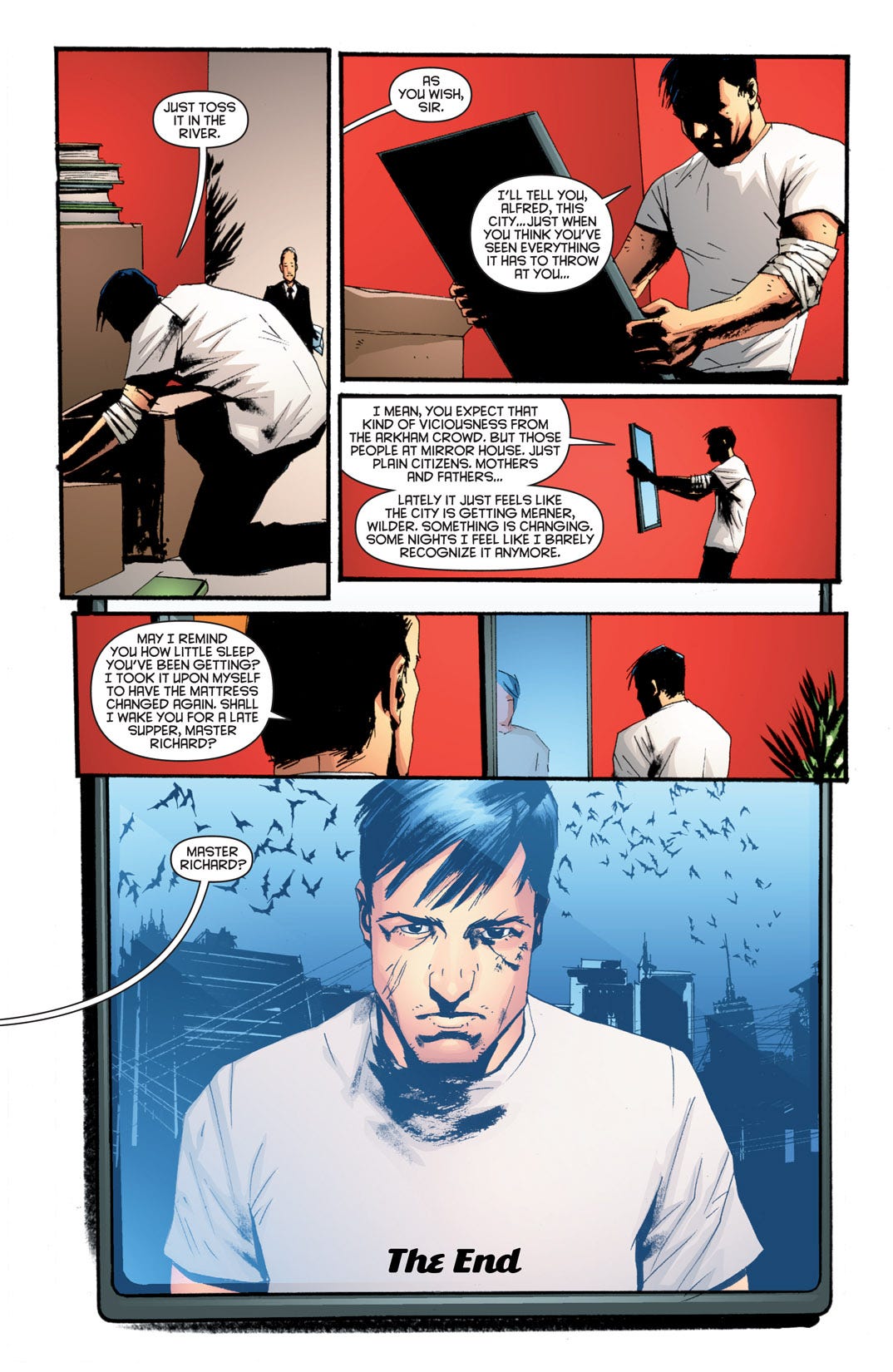




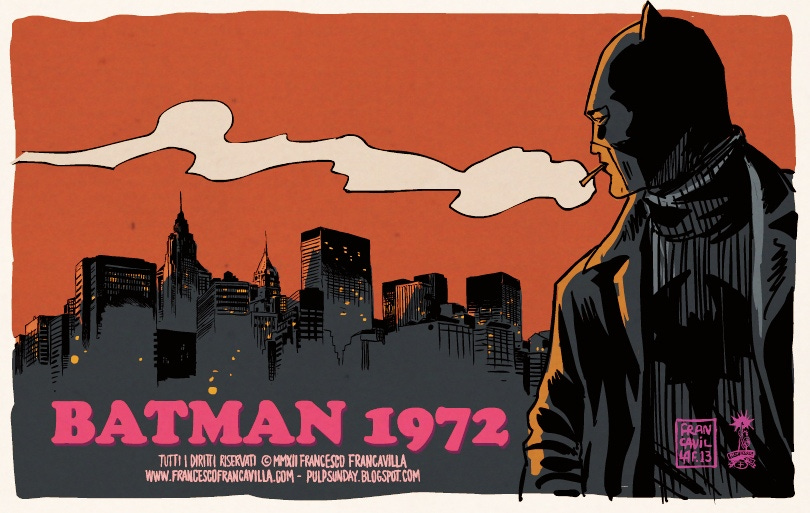




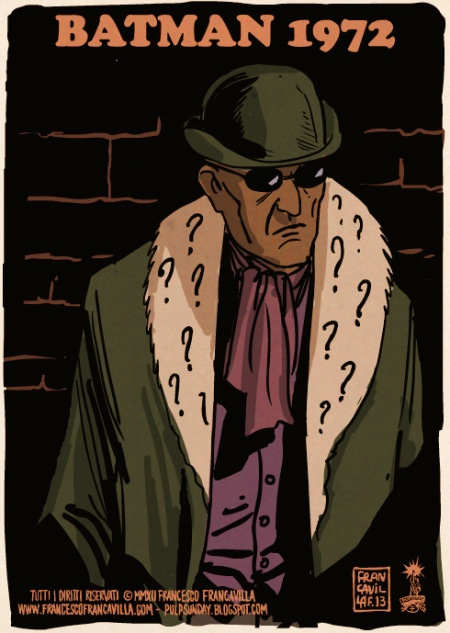
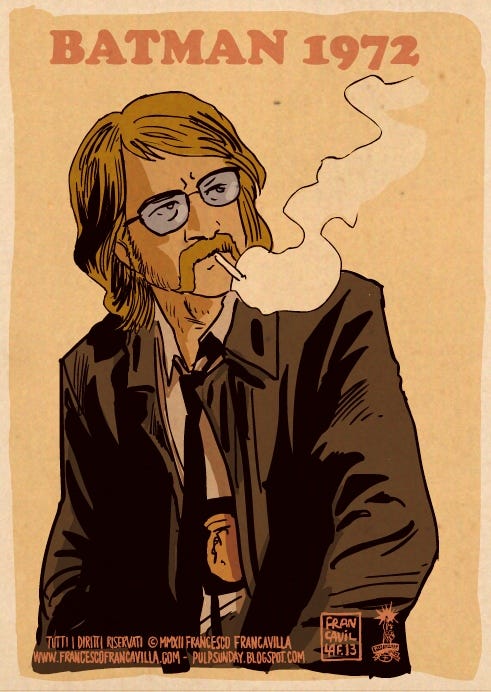

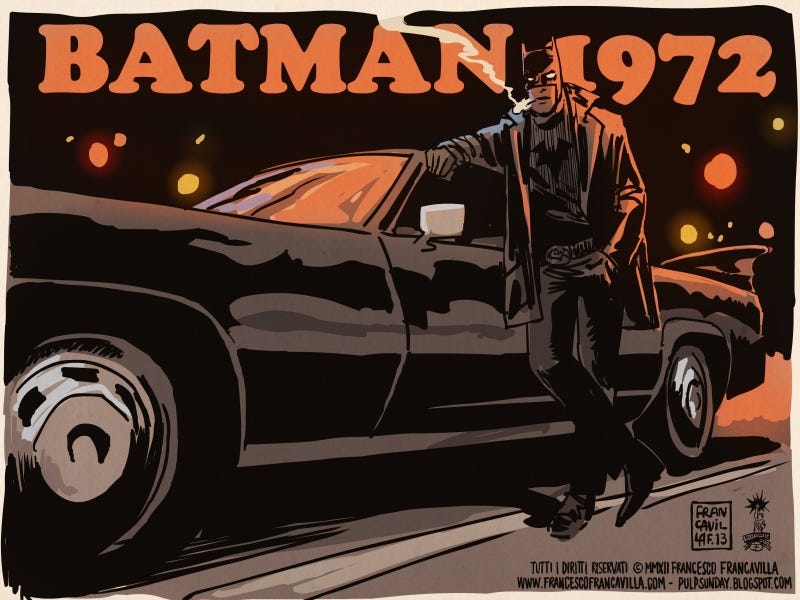
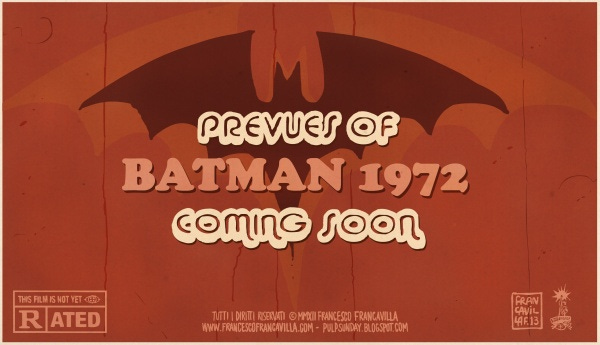




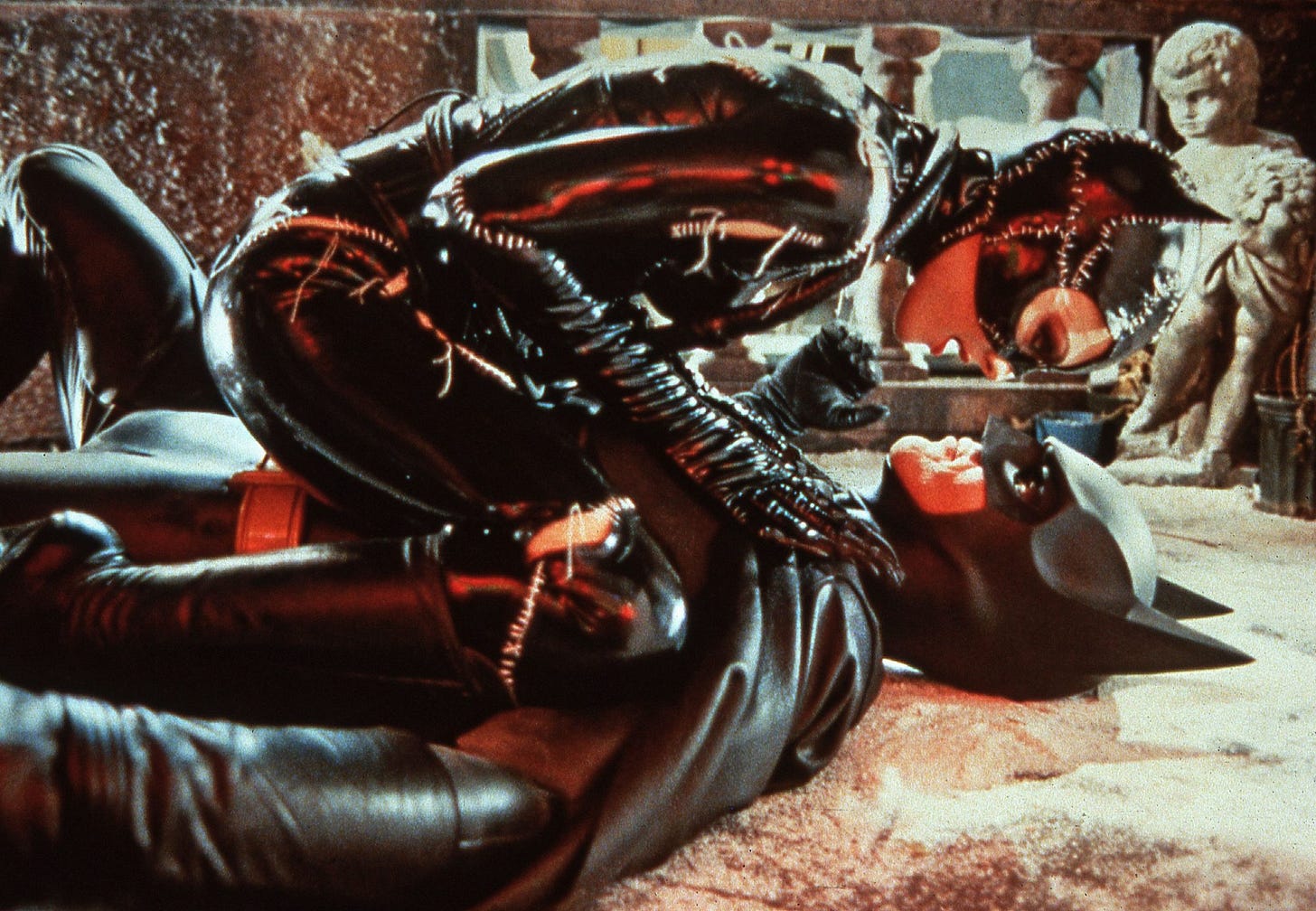
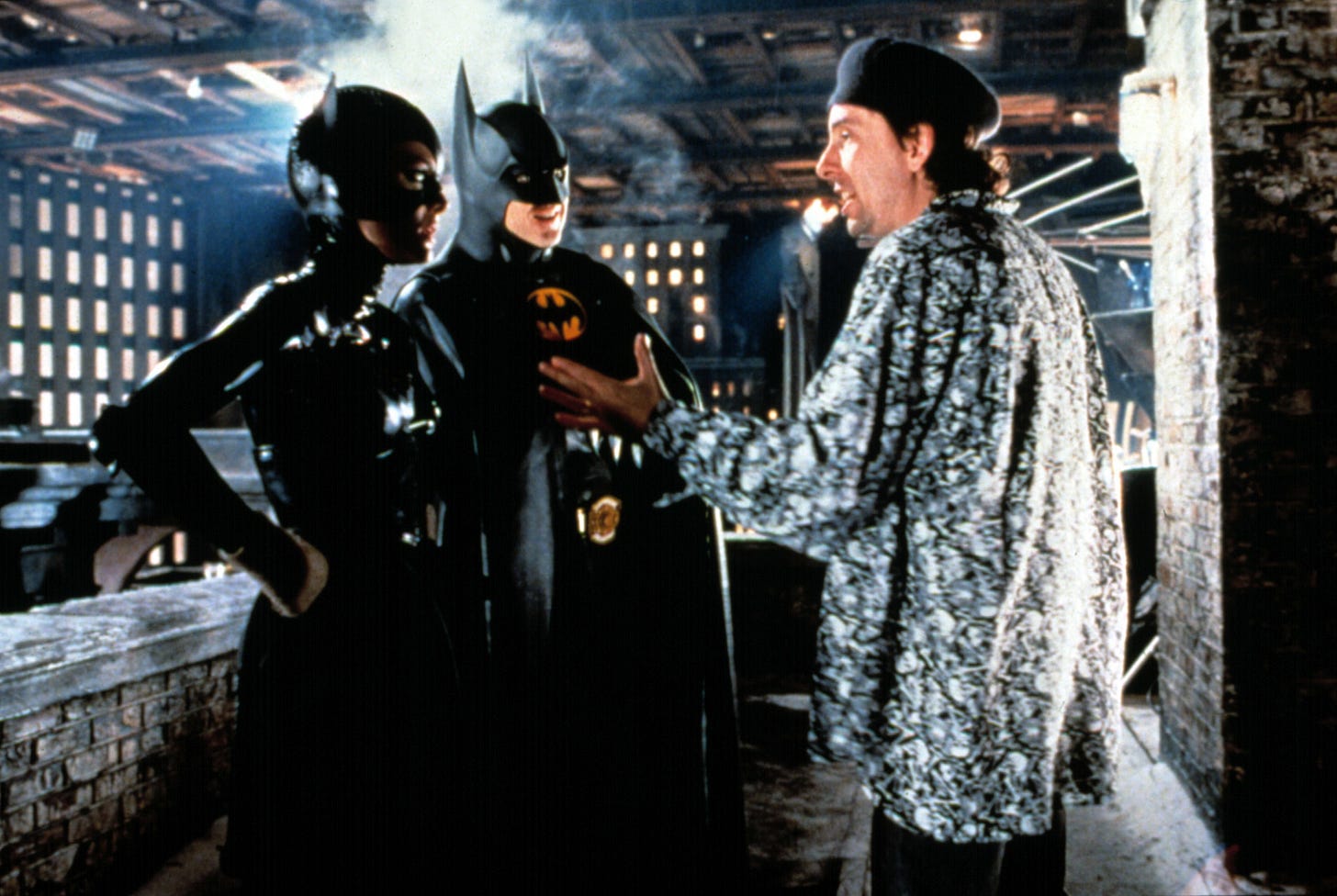

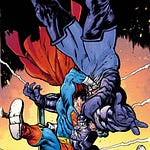
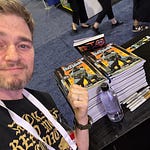
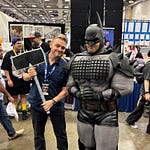


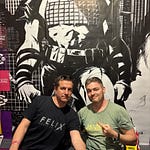
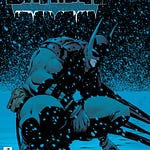
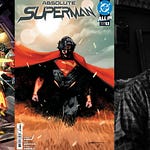
Share this post